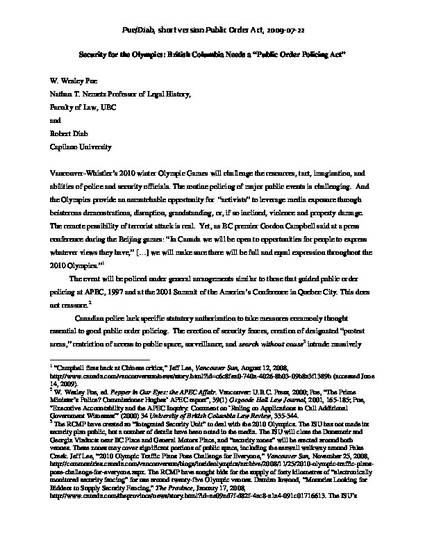
- Olympics; Security
Canadian police lack specific statutory authorization to take measures commonly thought essential to good public order policing. The erection of security fences, creation of designated 'protest areas', restriction of access to public space, surveillance, and search without cause intrude massively into the ordinary freedoms of law-abiding subjects. Such measures may be helpful, perhaps necessary. But no Canadian legislature has ever expressly conferred such powers. They do not reside in the domain of the common law. British Columbia urgently needs a provincial 'Public Order Policing Act' authorizing the creation of police exclusion zones, providing principled and explicit guidance to their proper extent and duration, establishing criteria about who would be allowed admission to 'secure areas' (workers, business owners, homeowners, emergency medical personnel, security officials, journalists, and others?), specify decision-making processes, establish principles of compensation, set out 'notice' requirement, and so on. Without this, the police will be acting beyond the law.

Click on link button(s) in this record for published version of this work.